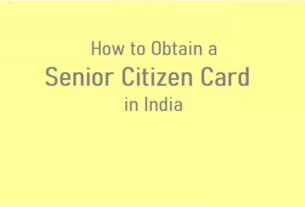For food business operators, their Food licence issued by the FSSAI, are the most important documents they need, and they should be displayed at the establishment. These certificates inform establishments of the rules they should follow so their customers or the people being supplied to are not put in danger of contamination.
These are issued only if they meet all the eligibility criteria for their respective registration categories and are consistent with them. Additionally, the FSSAI conducts a lot of inspections and random searches to make sure to keep FBOs in check.
According to the rules, the food licence can be suspended or cancelled on multiple grounds of either non-compliance or other issues with the establishment.
Reasons why an FBO Could end up Losing Their Food Licence or getting it Suspended
- If food poisoning outbreaks are causing the spread of diseases
- If the premises where the business is being run do not comply with the food operator’s rules and business terms
- There are serious food complaints raised about consumer’s safety
- If any of the FSSAI rules are broken or there are serious violations in compliance
- If there has been a history of not-compliance with food safety requirements and there are additional violation post notices and warnings
- There have been improvements made to the system and the FBO does not comply with them
- If there have been regular and continuous interruptions of an Officer
At the time of inspections, food business operators receive a grade for their premises, based on how well they followed the rules.
- Compliance (C)
- Non-compliance (NC)
- Partial compliance (PC)
- Not applicable/Not observed (NA)
Ideally, all companies and food business operators should be compliant and have the highest ranking. However, there are instances where they might have a genuine issue and ranking drop slightly, they should then immediately work toward bringing it up. There are cases where FBOs feel they received an incorrect ranking. They should immediately write a letter asking for a show cause to get it rectified.
The Definitions of the Grades are:
Compliance implies that the establishment is fully documented, meeting all requirements and completed all implementations. Adherence with all the requirements without any major or minor conformance.
Non-compliance implies that none of the requirements have been met. The establishment has not thoroughly documented their details and most of these are not implemented. Non-adherence with these requirements is a major issue with non-conformance.
Partial compliance implies that the requirements are partially implemented but not documented or partially documented but not implemented. These non-conformities, based on the judgement and experience of the FSO, do not fail the food safety management system or reduce its ability to meet the basic standard of processes or products. It may be the failure in some part to a specified requirement or single observed lapse. Since these can be rectified easily, they entail a reduced grade.
Not Applicable/Not observed (NA) imply that requirements do not apply to the FBO at all and cannot be observed at all.
All the scores an establishment receives are awarding as per the finding against the requirements, total marks calculated based on the outcome, after which the grading of the FBOs is handled.
The Grades have been Divided Into Four Categories
- A+ – Exemplarary – 90% & above
- A – Satisfactory – 80% – 89%
- B – Needs Improvement – 50 % – 79%
- No grade – Non-Compliance – Below 50%
For FSSAI registration click here
Details You Should Know About Shop Act License Registration in India
This Shop Act License Registration has been approved by the state government to regulate workplace and employment conditions. It provides the legal promise of business and the rights of employees and workers. All shops and facilities must be registered by law within 30 days of starting work. The Shop Act is a mandatory registration and is required if you have a business location. It is required to display this document in a prominent place in the office.
This law applies to Maharashtra as a whole and is state-specific, so it applies only to Maharashtra.
Applicability of Shop Act
- The scope of application of the Shop Law based on business establishments is as follows.
- If the place of business is within city limits, shop laws apply
- If the place of business is located in Gram Panchayat, the Shop Law does not apply.
- Your business employs 0 to 9 employees, you must apply for Shop Act Intimation.
- If your business employs more than nine employees, you must apply for Shop Law registration.
- If your establishment already employs 0-9 employees, and then you have more than 9 employees, you will need to apply for shop registration.
What are the Required Documents for Registering?
- A Proof of address such as electricity bill and owner’s NOC.
- Application form of Local Corporation in Greater Mumbai.
- Aadhar Card/Voter Id/Driving License/PAN.
- Owner photo.
- Pictures of the owner and the shop
MSME Registration
Why is MSME important?
Micro, Small, and Medium Enterprises are important for economic growth and stability in all countries and play an important role, especially in developing countries, to promote economic activity, provide employment and contribute to poverty reduction.
Benefits of MSME Registration
- 50% Subsidy on Patent Registration
- Collateral Free Loans
- Exemption from overdraft interest
- Reservation Policy
- Protection against payment delays
Eligibility Criteria for MSME Loans
An established business that has been operating for more than 6 months. A minimum turnover of ₹ 90,000 or more in the 3 months preceding your loan application. Businesses should not be classified on the SBA Finance blacklist / exclude list.
GST Registration
- GST (Goods and Services Tax) registration is a must for any supplier doing business anywhere in India.
- Where the sales exceed rupees. Rs 200,000 for the financial year is required to be registered and acquired in GSTIN.
Documents Required for GST Registration
- PAN card number of the Applicant
- Proof of business registration or Incorporation certificate
- Identity and Address proof of Promoters/Director with recent Photographs
- Aadhaar card
- Digital signature
- Address proof of business
Who Should Register for GST?
- Businesses with turnover of more than Rs. 40 Lakhs
- Individuals registered by following GST transfer law (eg consumption tax, value-added tax, service tax, etc.)
- Every e-commerce aggregator
Labor License
Objective of Labor License
The purpose of the law is to regulate the employment of contract labor in certain places of business and to regulate its abolition and related matters in certain situations.
Reason for Labor License Requirement
Contractors who employ more than 20 contract workers are required to obtain a license.
Documents Required for Labor License Registration
- A legal report showing the status of the company.
- Photograph of document showing allocation of PF code No.
- Copy of receipt/insurance policy received.
I wish you will find this blog helpful.



